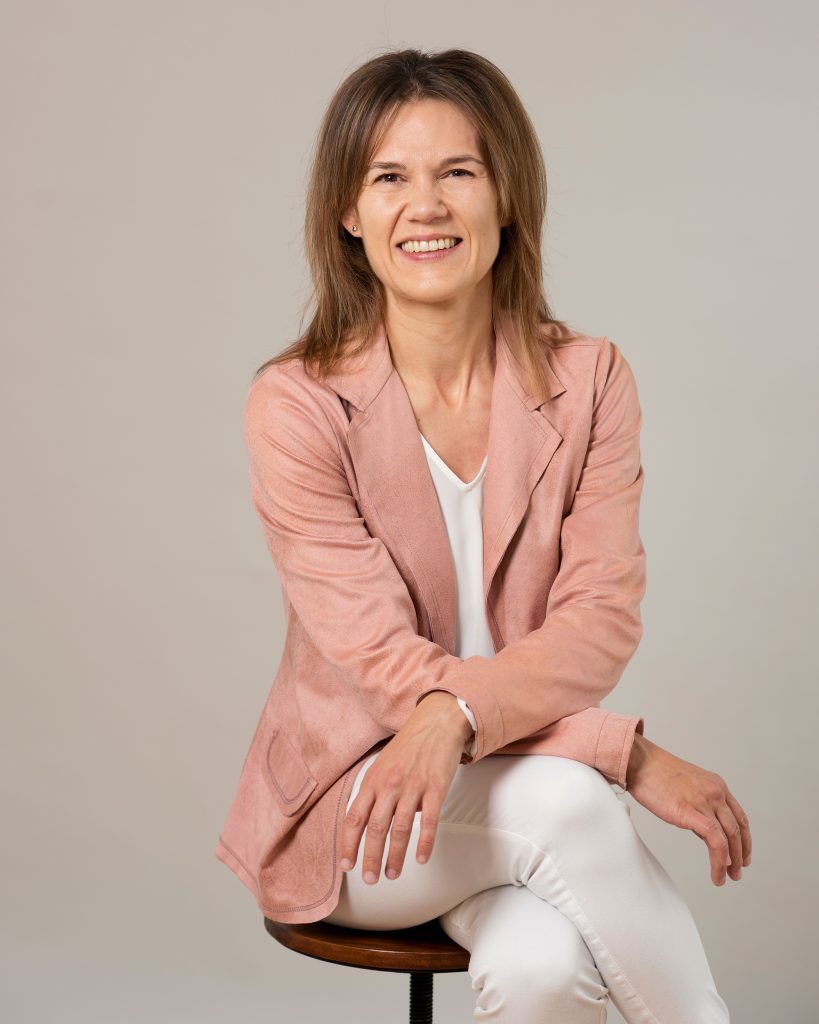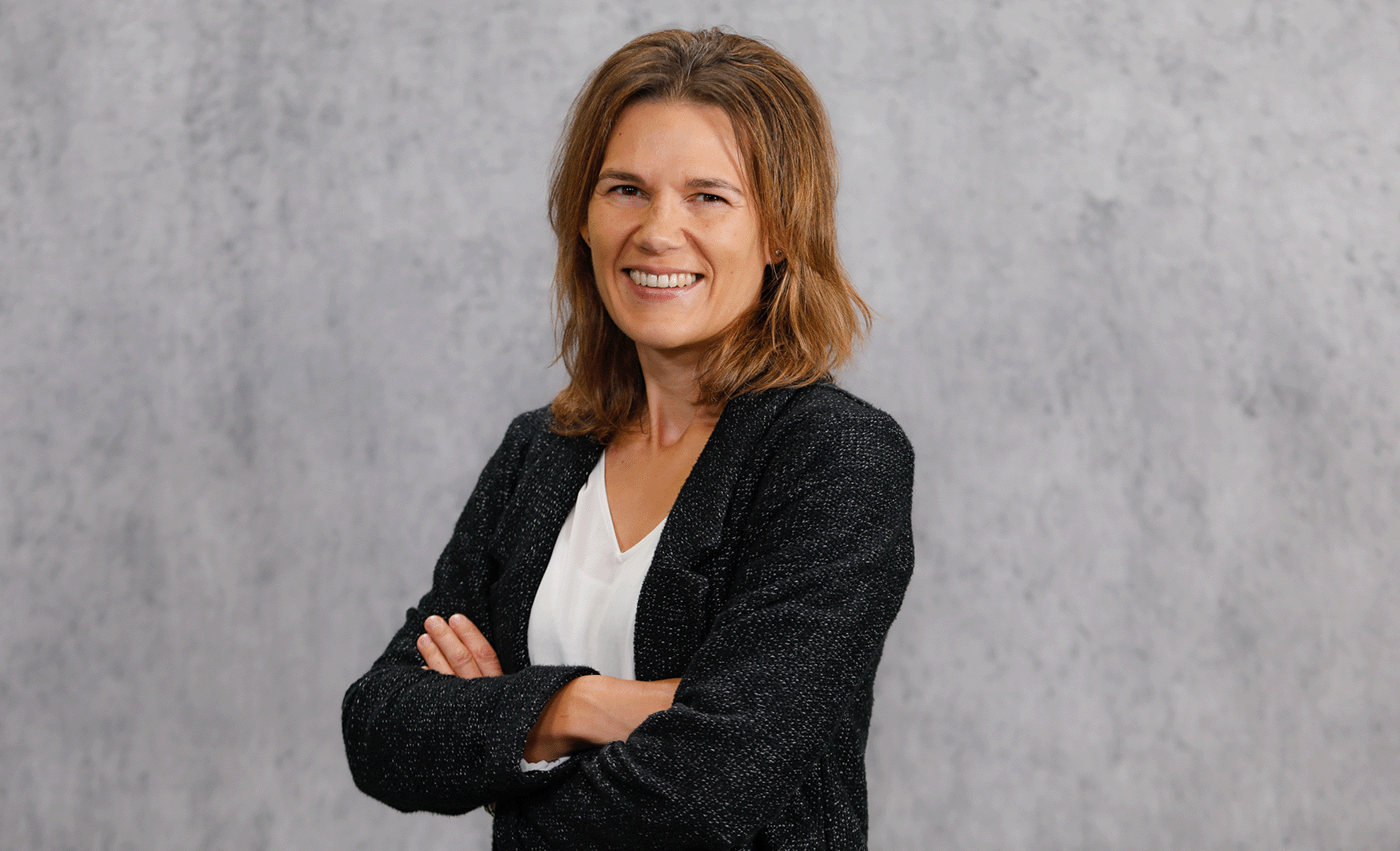Why sit back and let change happen when you can actively shape it? Laura Subirats Kärkkäinen, Head of Continuing Education at the ZHAW Institute of Translation and Interpreting, emphasises the importance of lifelong learning for language professionals. In the interview, she explains how a new format, namely the Language Resources Webinar Series, contributes to preparing language professionals for the challenges of tomorrow and why, for her, the language industry is still the most exciting industry to work in.
The digital transformation, and advancements in AI in particular, are driving disruptive change in the language industry. What skills do language professionals need to allow them to play their part in actively shaping this transformation?
Laura Subirats Kärkkäinen: Disruptive advancements in the field of digitalisation and innovative technologies are nothing new for the language industry. For the past 30 years at least, we have been constantly confronted with new ways of working, for example with the introduction of computer-assisted translation tools and machine translation. However, it is true that the advent of AI is changing the way that language professionals are working more than ever.
Mastering digital tools and dealing with technology are thus important skills for language professions. These tools and technologies can range from the above-mentioned solutions to basic programming, for example in the areas of translation and localisation, augmented reality in interpreting and the use of Chat GPT in the content transcreation process. The latter can take place in a range of fields of specialty and registers, including social media.
Besides this fundamental knowledge, it is also crucial to develop the ability to think critically and reflect about these new technologies and AI, especially with respect to their impact on our own workflow. For example, things that we used to do automatically or intuitively in our heads when we translate or proof-read can now be automated through a prompt. However, to write the right prompt, we need to know exactly what our processes are and what results we expect from a machine.
What advice would you give to language professionals who are currently feeling uncertain in their roles?
A year ago, I was working as a freelance translator and managing a language school. The advantage of working in the language industry is that you can work in different distinct roles at the same time. In the case of freelancers, who are the most affected by uncertainty, I would advise them to be open to change, keep up to date and learn as much as possible. This doesn’t only have to be through formal courses, but also through self-learning avenues like reading blogs, attending webinars held by experts or connecting with other professionals in the same field.
Networking with experts and colleagues both inhouse and online can be beneficial, not only as a means of exchanging knowledge and gaining insights, but also as a way of overcoming the fear to make changes or dealing with the frustration that these new ways of working can cause. I would also advise language professionals not to be afraid of having many strings to their bow and adding new roles to their portfolio, such as consultancy and managing roles. As we are the ones using language technology on a daily and professional basis, we are also the most qualified people to give advice about it and manage it properly.
You have developed the Language Resources Webinar Series, a series of brief research-based webinars on the most current developments in the language industry. Where did this idea come from?
The idea came from the language industry itself. In October 2023, the Institute of Translation and Interpreting hosted a meeting with representatives from prominent Swiss language service providers and language departments at big companies. They all expressed the necessity of being informed about the latest developments in the industry in a brief and compact format, for example during a half-hour window over lunch.
In addition to that, our Co-Head Prof. Alice Delorme Benites came up with the idea of a micro-credentials project where we could share our research-based insights with the wider language industry community and position ourselves as a reference, not only in Switzerland, but also internationally. We have put our offer together with the contribution of prominent experts who work directly in the field.
What are the hot topics in the language industry that will be examined more closely during these webinars?
For the 2024 edition, we will have a balanced mix of forward-looking insights spread over two blocks: on the one hand, we will present new skills needed in these changing times, like consultancy skills, translating for social media and dealing with special file formats. On the other, we will focus on new technologies such as extended reality technologies for interpreters, provide a comparison of translation management systems and look at AI in the terminology field or language AI for language professionals.
For the 2025 edition, we have more other interesting topics in the pipeline, such as current trends in machine translation, speech-to-text interpreting, multilingual text production with AI and computer-assisted interpreting, among others.
What can participants expect from these webinars?
The participants can expect targeted and forward-looking input about innovative solutions in the language industry, both at a research and practical level. This means that they will have access to a high-quality offering and up-to-date information that can help them be one step ahead of the competition, foresee changes and be better prepared for the future.
The webinars are offered in a compact format, meaning that if the participants would like to delve into a subject in more detail or further develop their skills, we can also suggest other courses within our offering that might meet their needs. From my point of view, this condensed overview can help language professionals become more aware of potential shortcomings in their portfolio and help them define which skills they need to develop their careers and stay competitive. In this sense, the webinar series also offers the perfect platform for outlining their own lifelong learning strategy.
Despite several degrees, including in translation, education institutions management and hotel management, you have focused on a career in the language industry. This might surprise some people, as the prospects in this sector are rather uncertain.
I grew up in a multicultural and multilingual environment and it was quite clear to me that I wanted to pursue a career in the language industry. I thus completed a Bachelor’s degree in Translating and Interpreting (prospects for this sector were already uncertain back then more than 20 years ago!). However, I kept learning about different fields, such as law, finance and tourism, which then became my fields of specialisation.
After my management studies, I combined my job as a translator and teacher with the management of a language school and now the continuing education area at the IUED. The point is that in a changing and technology-dependent world, we need to keep developing new skills and combining them with our deep knowledge of language processes. Nobody knows better than us how to optimise processes and be cost-efficient while ensuring the required quality and using the right tools for every language job. That is how we can seize our opportunities and turn our prospects as language professionals into a bright future.
Profile

Laura Subirats Kärkkäinen is a qualified translator and holds a degree in this field from Pompeu Fabra University in Barcelona, Spain. She has been working since September 2023 as Head of Continuing Education at the ZHAW’s Institute of Translation and Interpreting. Before that, she worked as a freelance translator and Spanish-for-foreigners’ language teacher both in Spain and Switzerland. After pursuing MAs in School Management and Hotel Management, she took on the operating management of a language school, where she was confronted with lifelong learning issues and developed advice and management strategies.
In her new role at the ZHAW, she would like to focus the continuing education offering at the Institute of Translation and Interpreting (IUED) on developing skills that will enable language professionals to remain fit for the future and to play an active role in shaping the change of language within a lifelong learning strategy.
Language Resources Webinar Series
Meet our researchers and experts once a month and stay up to date on the world of multilingual communication and language technology. Each 30-minute online session provides innovative and forward-looking input and is followed by a Q&A session where we answer your questions related to the topic at hand.
Would you like to gain insights into the future and stay up to date on the language industry and remain competitive in your profession? Or are you looking to refresh your existing knowledge that has perhaps become a little rusty, spiced up with the latest developments in each topic?
If so, subscribe now to our series of language resources webinars
